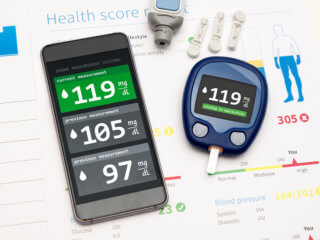Big data is already creating waves by revolutionizing the way health sector conducts. It is currently hailed as the heart of the future, with most of the technology firms already investing in big data analytics and Artificial Intelligence with foresight into future. It is a common perception to take ample time and consideration before investing in any new technology. But one can gather import of big data in medicine if the market requirements and popularity can be taken as a measure.
Before we begin, what is big data? Big Data relates to exponentially growing, Structured and Unstructured data sets with sizes beyond the ability of traditional database tools to store, manage and analyze them. In addition to its size and complexity, it refers to its capacity to help in “evidence-based” decision-making, having a high impact on business operations.
The recent hike of start-up firms taking an active interest in big data is in itself a proof of its necessity in today’s world. The extensive data used in analytics and research which later on can be compiled together to extract useful information is suggested to transform health care and drug discovery process. Big data comes into play around aggregating more and more information around multiple scales for what constitutes a disease—from the DNA, proteins, and metabolites to cells, tissues, organs, organisms, and ecosystems. Those are the features of the biology that we need to be modeling by integrating big data. Simultaneously it can be used to introduce blockchain technology(health cons) in the health sector. Health care marketers poised for success are leveraging big data in all their decision-making.
Market for big data in medicine
Health care data ranges from clinical data, patient data medical records, data from different sensors monitoring vital signs; news feeds to social media data. Complex electronic health data, being generate in such large volume is hard to manage with conventional data management tools. Big data is being used to predict epidemics, support clinical decisions, improve the quality of life and avoid preventable deaths. Consequently, the health care big data market is predicted to grow at a tremendous rate of around 42% during the forecast period.
Global Big Data market opportunity is estimated to grow at 45% annually to reach about $25 billion by 2015, from the current size of about USD 8.0 billion. This increased to the total of over $7.5 billion for 2016 which represents a 33% share of the $22.6 billion market, projected to grow to $92.2 billion by 2026. Big Data industry is characterized by technological advancements, niche startups, and a significant number of M&A’s. Through sustained investments to strengthen existing technologies & high talent pool build up, big data ecosystem continues to evolve.
It would be easy for health care organizations to access big data using mobile devices as most of the big data use cloud computing, which reduces overhead costs.
| Recommended for you | |
| Deep learning in health care | |
| Ethics for AI in medicine | |
| IoT arrives in health care |
Big data health care can be segmented as follows:
- Hardware
- Software
- Services
Today, 80% of data existing in any enterprise is unstructured data. We need NoSQL databases to store unstructured data, and innovative processing methods like Hadoop and massive parallel processing (MPP) to extract meaningful analysis from this data has led to several technologies to gain traction.
Most of the big players are involved in data management and advanced analytics.
Major players who are currently in this market are as follows:
Data analytics
- IBM SPSS
- Datameer
- Cloudera
- Oracle: Develop a comprehensive platform to analyze Big Data
- SAP: Health sector
- EMC
- EMC2: Accelerate development of Big Data analytic applications
- Teradata Aster: Strengthen position in data warehousing market through expertise in SQL and MapReduce-based analysis
- Horton Works
- IBM Watson: Extend Smarter Commerce suite with qualitative analytics software, Leverage data navigation technologies for Big Data by automating discovery of through innovative index and search capabilities, Addition of sales performance analytics
- HP Invent: Leverage Autonomy’s pattern-matching technology that recognizes unstructured data, understands it and processes it, Enhance real-time business analytics for Big Data
IT enabled services
- ZettaSet
- Accenture
- Genpact
- Sugar
- Crisis
- Infosys
- HCL
- EXL
- MuSigma
- Dell: leading vendor in health sector
- Cognizant
- Epic Center
- Philips Healthcare
- Amazon Web Services
- UnitedHealth
- Siemens
- Sogeti Healthcare
Emergence of Niche startups and technological developments fostering growth in the big data industry
Some leading startups in healthcare are as follows:
- CancerIQ: integrates real-time medical data to identify patient risks, interpret complex data, and highlight the best evidence-based interventions
- Synapse: enables the generation and use of profiles in diagnosing and treating patients at diagnostic companies, research institutions, medical centers, and payers
- Flatiron Health: business and clinical intelligence platform for oncology providers (Oncology Data Platform)
- Kyruus: network analytics to identify and understand key social connections that drive commercial, organizational, and health results (Patient Access Healthcare Big Data Referral Management)
- Lumeris: population health management tools for ACOs (Accountable Care is a Journey)
We will now represent the market trends:
| Market Trends and Developments | Impact on Industry |
|---|---|
| Converging technology trends in data storage, processing, and analytics are driving adoption | |
| Emergence of niche Big Data startups driving technological innovation | |
| Large IT players leveraging M&A’s to add Big Data capabilities to their service portfolios | |
| Talent shortage is one of the biggest challenges of the Big Data space | |
| Lack of awareness about benefits of Big Data may limit enterprise adoption | |
| Regulations driving the adoption in various industry verticals |
Image credit: www.istockphoto.com

















